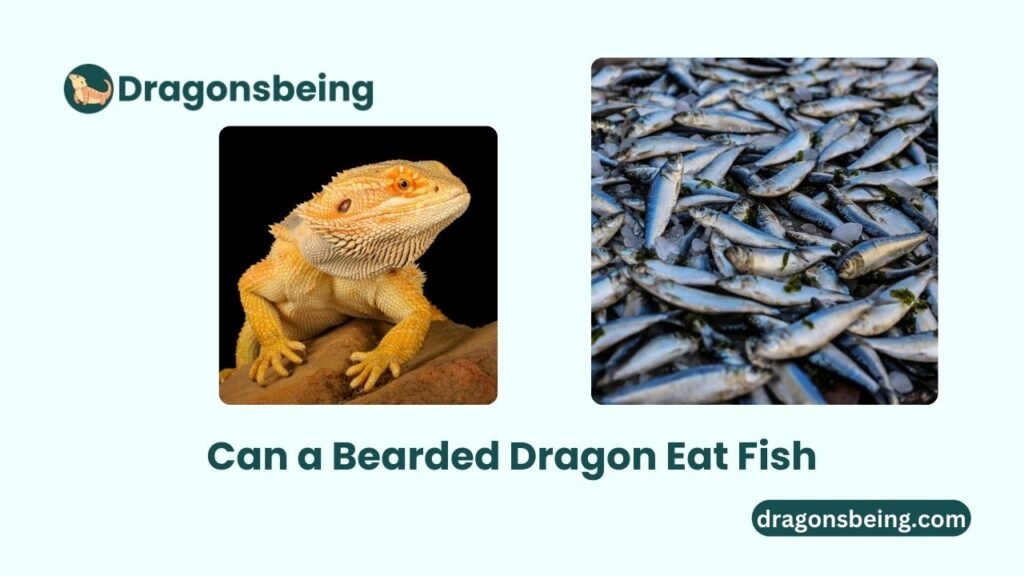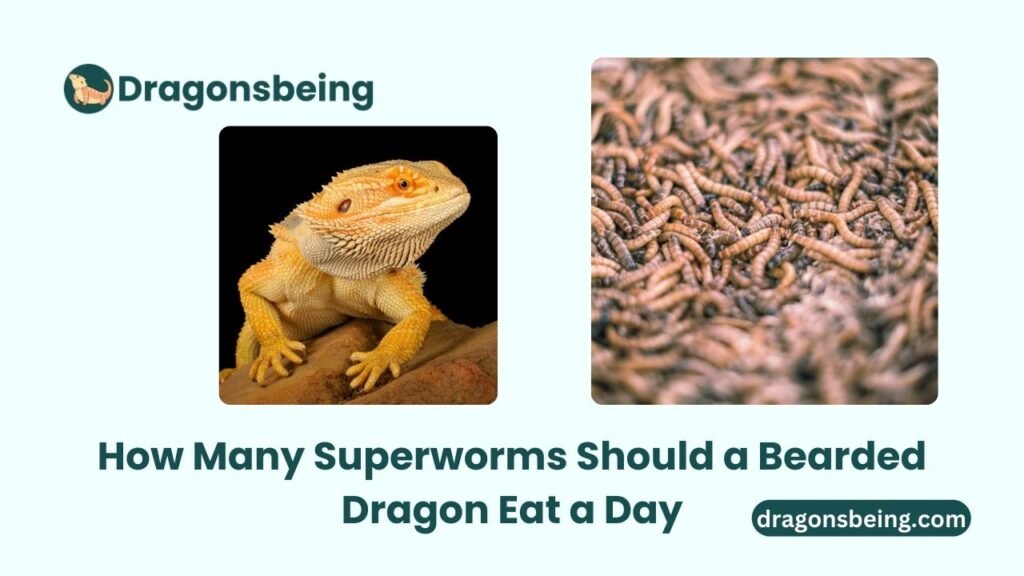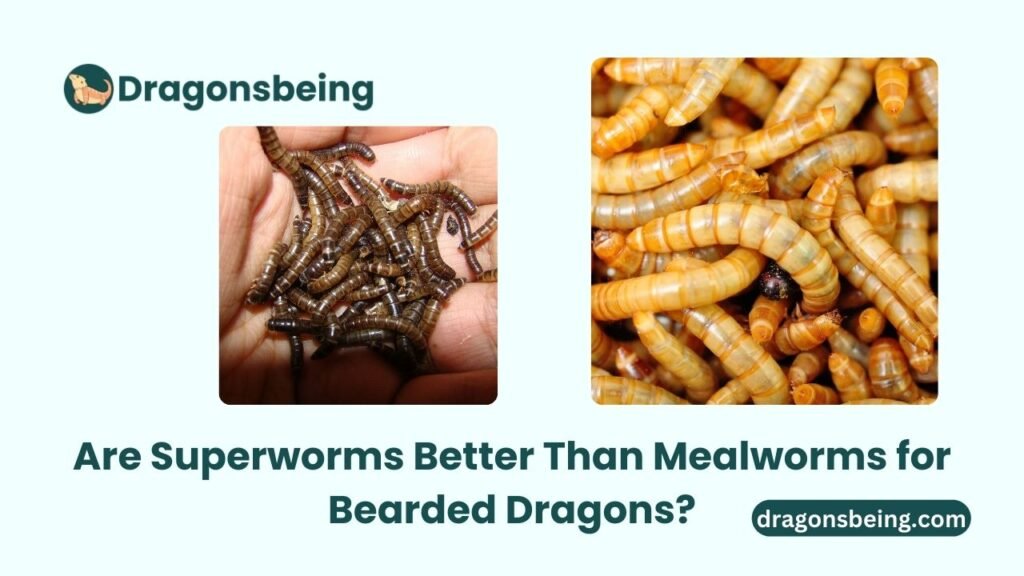Bearded dragons can eat fish, but it should only be an occasional treat. Fish lacks essential nutrients for their overall diet.
Bearded dragons are popular pets known for their unique dietary needs. Their diet primarily consists of insects, greens, and vegetables.
While some owners may wonder if fish can be included, it’s essential to understand the implications. Fish offers protein but lacks crucial vitamins and minerals.
Feeding fish too often can lead to health issues. A well-balanced diet ensures your bearded dragon thrives. Always prioritize staple foods like crickets and leafy greens for their main meals.
Treats like fish should be given sparingly and prepared properly. Understanding your pet’s nutritional needs will help maintain their health and longevity.
Fish In A Bearded Dragon’s Diet
Bearded dragons can eat a variety of foods. Some pet owners wonder about adding fish to their diet. Fish contains nutrients, but it also poses risks. Understanding these factors is essential for your pet’s health.
Potential Health Benefits
Fish can provide some health benefits for bearded dragons. Here are a few:
- High protein content: Fish is rich in protein. This helps in growth and muscle development.
- Omega-3 fatty acids: Fish contains healthy fats. These can support skin and coat health.
- Essential vitamins: Fish provides vitamins like B12. These vitamins are vital for energy and overall health.
Risks And Considerations
Feeding fish to bearded dragons has risks. Some important points to consider include:
- Mercury content: Fish may contain mercury. High levels can be harmful to your dragon.
- Thiaminase: Some fish contain thiaminase. This enzyme can break down vitamin B1, leading to deficiencies.
- Bone hazards: Fish bones can be sharp. These may cause injuries in the mouth or throat.
- Imbalance in diet: Fish should not replace staple foods. Bearded dragons need a balanced diet of vegetables and insects.
| Benefits | Risks |
|---|---|
| High protein content | Mercury content |
| Omega-3 fatty acids | Thiaminase presence |
| Essential vitamins | Bone hazards |
| Imbalance in diet |
Types Of Fish To Avoid
Choosing the right fish for your bearded dragon is crucial. Some fish can harm their health. Here are two main types of fish to avoid.
High Mercury Content Fish
Fish with high mercury levels can be dangerous. Mercury can build up in your bearded dragon’s body. This can lead to serious health issues. Avoid these fish:
- Shark
- Swordfish
- King Mackerel
- Tuna
These fish contain high mercury levels. Limit exposure to these fish completely.
Fish With Sharp Bones
Fish with sharp bones can cause injuries. Bearded dragons might choke or get hurt. Avoid feeding these types:
- Catfish
- Tilapia
- Pike
Sharp bones can pierce their throat or stomach. Always choose soft, boneless fish.
Safe Fish For Bearded Dragons
Bearded dragons can eat fish, but not all types are safe. Some fish offer nutritional benefits, while others can harm your pet. It’s vital to choose the right fish and prepare it properly for your bearded dragon.
Recommended Fish Types
- Salmon: Rich in omega-3 fatty acids.
- Tilapia: Mild flavor and easy to digest.
- Sardines: Packed with nutrients and healthy fats.
- Trout: Offers protein and vitamins.
Preparation Methods
Proper preparation of fish is crucial for your bearded dragon’s health. Follow these steps:
- Thoroughly wash the fish.
- Remove all bones.
- Cook the fish to kill bacteria.
- Cut the fish into small, manageable pieces.
- Serve in moderation.
Never feed raw fish. It can contain harmful parasites. Always ensure the fish is fresh and safe.
Feeding Frequency And Portions
Understanding the right feeding frequency and portion sizes is vital. Bearded dragons have specific dietary needs. Fish can be a treat, but moderation is key. Feeding them too often can lead to health issues.
How Often To Feed Fish
Fish should not be a daily meal for your bearded dragon. Here are some guidelines:
- Offer fish once every 1 to 2 weeks.
- Observe your dragon’s reaction to fish.
- Adjust frequency based on age and health.
Too much fish can cause digestive problems. Always prioritize a balanced diet. Focus on greens, insects, and fruits.
Appropriate Portion Sizes
Portion sizes are crucial for your bearded dragon’s health. Follow these tips:
| Age Group | Fish Portion Size |
|---|---|
| Juvenile (0-6 months) | 1/4 to 1/2 ounce |
| Sub-adult (6-12 months) | 1/2 to 1 ounce |
| Adult (1 year and older) | 1 to 2 ounces |
Fish should be fresh and appropriately sized. Remove any uneaten portions. Overfeeding can lead to obesity.
Always consult a vet for specific advice. Each dragon may have unique needs.
Alternatives To Fish In Their Diet
Bearded dragons can enjoy a variety of foods. Fish is not a staple for them. Instead, they thrive on vegetables, fruits, and insects. Here are some great alternatives to fish.
Vegetable And Fruit Options
Vegetables and fruits are essential for bearded dragons. They provide vital nutrients and fiber. Here are some safe choices:
- Leafy Greens: Collard greens, kale, and dandelion greens.
- Squash: Zucchini and butternut squash are excellent.
- Carrots: Grated or chopped carrots are nutritious.
- Bell Peppers: They add color and vitamins.
- Berries: Strawberries, blueberries, and raspberries are favorites.
Chop vegetables and fruits into small pieces. This helps your bearded dragon eat easily. Offer a mix to keep their diet interesting.
Insect Protein Sources
Insects provide important protein for bearded dragons. They support healthy growth and energy. Here are some great insect options:
| Insect | Benefits |
|---|---|
| Crickets | High in protein and easy to digest. |
| Mealworms | Rich in fat and protein. |
| Dubia Roaches | Low in fat and high in protein. |
| Waxworms | High fat content; use sparingly. |
| Superworms | High in protein; good for occasional treats. |
Dust insects with calcium powder before feeding. This adds essential nutrients. Offer a variety to keep your bearded dragon healthy.
Observing Your Bearded Dragon’s Health
Keeping an eye on your bearded dragon’s health is crucial. Their diet affects their overall well-being. Fish might seem like a tasty treat, but it can impact their health. Understanding the signs of nutritional imbalance is key.
Signs Of Nutritional Imbalance
Watch for these signs of nutritional issues:
- Weight Loss: A sudden drop in weight is a red flag.
- Loss of Appetite: Ignoring food can signal problems.
- Abnormal Stool: Diarrhea or hard stools indicate trouble.
- Color Changes: Dull skin color can mean poor nutrition.
- Behavior Changes: Lethargy or aggression is concerning.
Keep a close watch on your bearded dragon. Regular observations help catch issues early. A balanced diet is vital for their health.
When To Consult A Vet
If you notice any signs above, consult a vet immediately. Early intervention can prevent serious issues. Here are some situations to seek professional help:
- Persistent weight loss over a week.
- Refusal to eat for more than a few days.
- Repeated abnormal stool patterns.
- Severe color changes or shedding issues.
- Unusual behavior lasting more than a day.
Choosing the right foods is essential for your dragon’s health. Fish should be given cautiously. Always prioritize a varied diet rich in nutrients.
Faqs On Bearded Dragons And Fish
Bearded dragons are popular pets. Many owners wonder about their diet. Can they eat fish? This section answers common questions about bearded dragons and fish.
Common Questions
- Can bearded dragons eat fish?
- Is fish safe for bearded dragons?
- What types of fish can they eat?
- How often can bearded dragons eat fish?
- Are there any risks in feeding fish?
Expert Answers
Can bearded dragons eat fish?
Yes, bearded dragons can eat fish. However, it should not be a main part of their diet.
Is fish safe for bearded dragons?
Fish can be safe. Choose fresh, cooked fish without bones or additives.
What types of fish can they eat?
- Salmon
- Tilapia
- Sardines (in moderation)
How often can bearded dragons eat fish?
Limit fish to once a month. Too much fish can cause health issues.
Are there any risks in feeding fish?
Fish may contain high levels of mercury. Avoid feeding raw fish. Bones can also pose choking hazards.
| Fish Type | Safety | Feeding Frequency |
|---|---|---|
| Salmon | Safe if cooked | Once a month |
| Tilapia | Safe if cooked | Once a month |
| Sardines | Safe in moderation | Once a month |
Frequently Asked Questions
Can Bearded Dragons Eat Raw Fish?
Raw fish can pose health risks and isn’t recommended for bearded dragons due to potential parasites.
Is Fish Safe For Bearded Dragons?
Fish isn’t considered a safe food option for bearded dragons; they require a balanced diet of insects and vegetables.
What Can Bearded Dragons Eat Instead Of Fish?
Bearded dragons thrive on insects like crickets, and leafy greens such as collard greens and kale.
Can Bearded Dragons Have Cooked Fish?
Cooked fish is not a suitable food for bearded dragons and lacks essential nutrients they need.
Do Bearded Dragons Like Fish Flavor?
While some bearded dragons may nibble on fish, it’s not a natural part of their diet.
How Often Can Bearded Dragons Eat Fish?
Fish should not be included in a bearded dragon’s diet at all; focus on appropriate foods instead.
Conclusion
Feeding a bearded dragon fish is not advisable. Their diet should primarily consist of insects and leafy greens. While fish is not toxic, it lacks essential nutrients for optimal health. Always prioritize a balanced diet tailored to your pet’s needs.
Consult a vet for specific dietary advice to keep your bearded dragon thriving.

Hi, I’m Dr. Michelle Mayers, a veterinary professional with a deep passion for animal health and well-being. Over the years, I’ve dedicated my life to caring for animals and helping pet owners better understand their furry, feathered, or scaly companions. On my blog, Dragonsbeing, I share insights, tips, and stories that aim to educate, inspire, and connect with fellow animal lovers. Join me at Dragonsbeing as we explore the fascinating world of veterinary care and celebrate the special bond between humans and animals!


